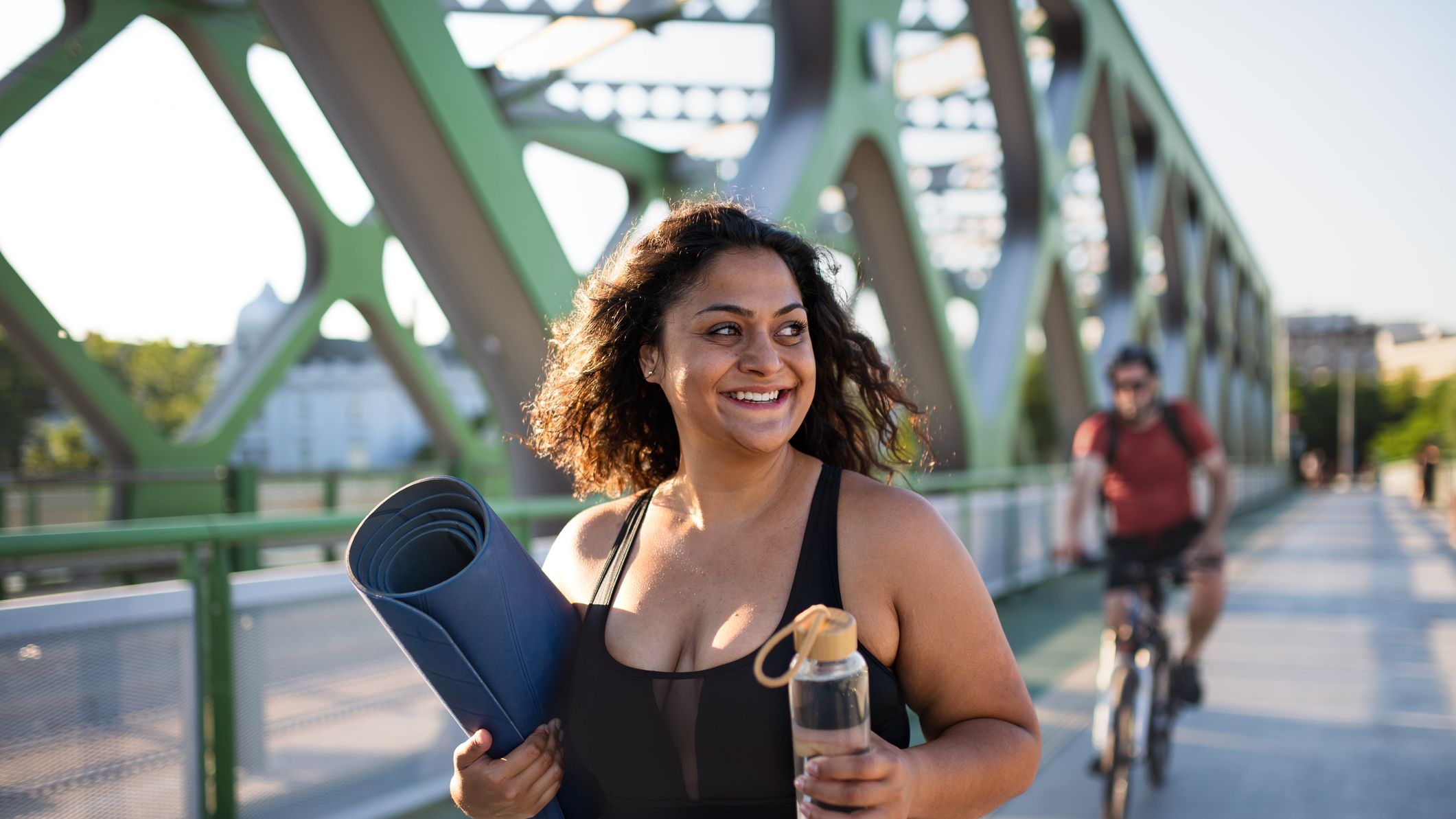Hiking typically burns between 430 to 480 calories per hour for a person weighing around 160 pounds. For a 200-pound individual, it can burn approximately 550 to 600 calories per hour.
Hiking is not just a leisure activity; it’s a dynamic way to engage with nature while benefiting your physical health. As you embrace the ruggedness of the trails, your body works tirelessly against the varying terrain, inclines, and sometimes the altitude, which significantly boosts calorie expenditure.
The actual calories burned can vary based on factors such as trail difficulty, hiker’s weight, pace, and backpack weight. Whether you’re an avid mountaineer or a weekend trail walker, understanding the energy you expend is crucial for mapping out your fitness goals. Integrating this adventure sport into your fitness regimen can lead to improved cardiovascular health, strengthened muscles, and enhanced endurance, all while providing a refreshing break from the monotony of gym workouts.
Calorie Burn And Hiking: A Dynamic Duo
Hiking is an excellent way to burn calories. The number of calories burned during a hike depends on various factors. Body weight, trail difficulty, and hiking pace play crucial roles. A person weighing more burns more calories. Rough trails make your body work harder.
Carrying a backpack adds to the calorie count. Weather conditions, like heat or cold, affect it too. Consider these elements to estimate your burn rate. On average, hiking burns between 400-550 calories per hour. To get a better idea of your personal calorie burn, refer to the table below:
| Body Weight | Gentle Hike | Moderate Hike | Challenging Hike |
|---|---|---|---|
| 125 lbs | 180 | 240 | 330 |
| 155 lbs | 222 | 298 | 409 |
| 185 lbs | 266 | 356 | 488 |
Estimating Calories Burned: From Gentle Slopes To Rugged Terrain
The topography you hike through can greatly affect the number of calories burned. Flat paths will burn fewer calories than steep trails. To calculate the burn rate, consider the terrain’s difficulty.
- Gentle slopes might burn similar calories to walking on flat ground.
- Moderate hills increase exertion, raising calorie burn.
- Rugged terrain demands higher energy, maximizing calories burned.
Carrying a backpack adds to the challenge. This means more calories burned even on gentler slopes. Your body burns calories to move and stabilize on uneven ground. Always consider hiking intensity for accurate calorie estimates.
The Hiker’s Profile: Weight, Pace, And Duration
The amount of calories burned while hiking deeply depends on individual weight. A heavy person burns more calories. Lighter individuals burn fewer calories. This is because the heavier you are, the harder your body works.
Moving faster or slower changes calorie burning. Fast pace hiking increases heart rate. This means more calories get burned. A slow pace results in fewer calories burned. It’s important to maintain a steady pace for good health.
The long time spent on trails can lead to a significant total calorie burn. A short hike burns less. A multi-hour trek can burn calories much like a full workout. Remember, the longer you hike, the more calories you’ll use.

Credit: www.prevention.com
Gear Up: How Equipment Affects Calorie Spending
Climbing a mountain or walking trails can burn lots of calories. Your gear plays a big part in this. Heavier backpacks make your body work harder, using more energy. For every extra pound, you could burn around 50 more calories an hour.
| Gear Item | Increased Calorie Burn |
|---|---|
| Light Backpack | Minimal Impact |
| Medium Backpack | Moderate Increase |
| Heavy Backpack | High Calorie Burn |
Tech gear like GPS and trekking poles also add to your burn. They help in tough spots but use more energy. Keeping pace with these gadgets can mean extra calories gone.
Maximizing Burn: Tips And Tricks For Hikers
To maximize calorie burn while hiking, consider these trail strategies. Pick a route with varying elevations. Changes in terrain work different muscle groups. Carry a heavier pack to increase resistance. But, keep safety in mind. Short, high-intensity bursts up steep sections can spike calorie expenditure. Maintain a steady pace. This helps burn more calories over time.
Other habits include: using trekking poles for added upper body work. This can also increase balance and stability. Engage your core as you walk. This will strengthen your muscles. Stay hydrated and eat nutrient-rich snacks. They keep your energy levels stable. This helps you hike longer and burn more calories.

Credit: www.facebook.com
Trail Snacking: Balancing Intake And Expenditure
Choosing optimal snacks for your hike is crucial. Aim for a mix of carbs, protein, and fats.
Carbs give you quick energy. Proteins and fats sustain that energy. Don’t pick only sugary snacks. This leads to energy peaks and crashes.
Good snack choices include nuts, seeds, and dried fruits. Also consider whole-grain foods and jerky. These provide long-lasting power for hiking.
Keep your body hydrated and energized. Balance your food intake with the calories burned during your hike. This supports a strong hiking metabolism.

Credit: thefamilytriponline.com
Frequently Asked Questions For How Many Calories Does Hiking Burn
How Much Weight Can You Lose Hiking?
Regular hiking can contribute to weight loss as it burns significant calories. Depending on the intensity, a person can burn between 400-550 calories per hour. Consistent weekly hikes combined with a healthy diet can lead to noticeable weight loss over time.
Does Hiking’s Calorie Burn Vary By Terrain?
Yes, terrain has a big impact on calories burned while hiking. Rough or steep terrain increases the intensity of your workout, which can substantially increase the calorie burn compared to flat or smooth trails. The more challenging the hike, the more calories you are likely to expend.
What Factors Influence Hiking’s Calorie Expenditure?
Calorie expenditure during hiking is influenced by several factors including body weight, backpack weight, hike duration, pace, terrain difficulty, and individual metabolism. A heavier person or someone carrying a heavier load will generally burn more calories.
Can Hiking Burn More Calories Than Running?
Hiking can burn a similar number of calories to running, especially on challenging terrain or at high inclines. While running generally burns more calories per minute, long-duration hikes, particularly over rough terrain, can lead to a comparable calorie burn over time.
Conclusion
Wrapping up, hiking offers a dynamic calorie burn. It melds adventure with fitness, making it ideal for weight loss and health. The exact calories torched vary by terrain and intensity. Strapping on your hiking boots is more than a trek—it’s a step towards wellness.
Embrace the trail and energize your body.

